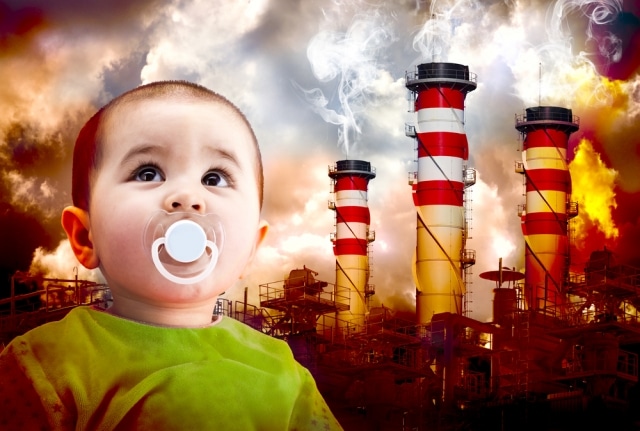With scant media attention, climate scientists from Stanford University have concluded that climate change is occurring 10 times faster than at any time in the past 65 million years, and the current pace of change will lead to a 5-6 degree (Celsius) spike by the end of this century.
The findings come from a review of climate research by Noah Diffenbaugh, an associate professor of environmental Earth system science, and Chris Field, a professor of biology and of environmental Earth system science and the director of the Department of Global Ecology at the Carnegie Institution. Both scientists are senior fellows at the Stanford Woods Institute for the Environment. Their work is part of a special report on climate change in the current issue of Science.
Without human intervention to reduce additional greenhouse gas emissions in the near-term, the report says, the ensuing rise in global temperature will place significant stress on terrestrial ecosystems around the world.
The report pointed to historical precedents in naturally occurring temperature rise. While similar climate change has occurred in specific periods of Earth’s history, said the authors, the rate of such rise during today’s crisis is unprecedented – and attributable to human influences not present in previous epochs.
A similar spike in global temperature as is happening today occurred some 20,000 years ago, for example, when the Earth emerged from the last ice age. Over thousands of years, plant and animals adapted to this change by altering habitat.
“We know from past changes that ecosystems have responded to a few degrees of global temperature change over thousands of years,” said Diffenbaugh. “But the unprecedented trajectory that we’re on now is forcing that change to occur over decades. That’s orders of magnitude faster, and we’re already seeing that some species are challenged by that rate of change.”
“There are two key differences for ecosystems in the coming decades compared with the geologic past,” Diffenbaugh said. “One is the rapid pace of modern climate change. The other is that today there are multiple human stressors that were not present 55 million years ago, such as urbanization and air and water pollution.”
By the end of the century, should current emissions of greenhouse gases remain unchecked, temperatures over the northern hemisphere will tip 5-6 degrees C warmer than today’s averages. In this case, the hottest summer of the last 20 years becomes the new annual norm.
“It’s not easy to intuit the exact impact from annual temperatures warming by 6 C,” Diffenbaugh said. “But this would present a novel climate for most land areas. Given the impacts those kinds of seasons currently have on terrestrial forests, agriculture and human health, we’ll likely see substantial stress from severely hot conditions.”
Some climate changes will be unavoidable, because humans have already emitted greenhouse gases into the atmosphere, and the atmosphere and oceans have already been heated.
“There is already some inertia in place,” Diffenbaugh said. “If every new power plant or factory in the world produced zero emissions, we’d still see impact from the existing infrastructure, and from gases already released.”
The more dramatic changes that could occur by the end of the century, however, are not written in stone. There are many human variables at play that could slow the pace and magnitude of change – or accelerate it.
The report comes as the world awaits an upcoming report by the Intergovernmental Panel on Climate Change (IPCC) confirming new findings that man-made greenhouse gas emissions are the single major contributor to the current rapid rise in global climate averages.
Meanwhile, in related climate news….
GOP Congressional leaders, continuing to prove themselves the historical equivalent of the Dominican Friars of 1614 who condemned Galileo for suggesting that science shows that the Earth revolves around the sun, have strongly criticized the Obama administration’s newly-announced regulations on greenhouse gas emissions from new power plants. The rules are considered one of Obama’s strongest efforts to date to curb greenhouse gas emissions, and particularly restrictive on the coal industry, the largest historical industrial emitter of CO2.
Senator Mitch McConnell (R-Ky), leading the criticisms, summarized well the flat-Earth inclination of his Congressional colleauges as he decried the EPA’s “never-ending war on coal.” McConnell, in his comments, did not refer to the $2 million in campaign contributions he has received from the fossil fuel industry.
Image credit: Child looks at polluted sky via Shutterstock.
Subscribe to our newsletter
Stay up to date with DeSmog news and alerts





